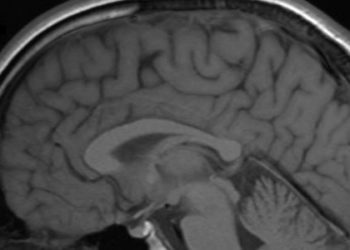Gluten intake in females without celiac disease is not associated with cognitive function
1. In middle-aged women without celiac disease, there is no significant association between gluten intake and cognitive function across quintiles of gluten intake.
2. Further stratification by potential confounding factors such as age, smoking status, and history of diabetes also yielded null results.
Evidence Rating Level: 2 (Good)
In patients with celiac disease, gluten intake, which triggers severe autoimmune responses, has been linked with cognitive impairment. However, whether gluten intake is associated with cognitive impairment in individuals without celiac disease or nonceliac gluten sensitivity is unclear.
This prospective cohort study aimed to determine if long-term gluten intake in women without celiac disease is associated with cognitive function. Dietary data from 13,494 women were collected every 4 years from 1991-2015. The primary outcome was cognitive function, which was measured using Cogstate Brief Battery™, an online, self-administered assessment commonly used to measure cognitive decline in patients with Alzheimer’s Disease and other neuropsychiatric conditions. Cognitive scores in 1) psychomotor speed and attention, 2) learning and working memory, and 3) global cognition were collected from 2014-2019. Women who did not complete the full cognitive assessment, had implausible low scores suggestive of technical errors, previous history of stroke, or diagnosis of celiac anytime during study period were excluded. Overall, there were no significant associations between amount of gluten intake and cognition scores. Further stratification by potential confounders such as age, smoking status, BMI, depression status, and history of diabetes, hypertension, and hypercholesterolemia mostly yielded null results. Lastly, changes in gluten intake pattern during study period was also not associated with cognitive scores. Overall, this large-sized, long-term cohort study suggests that gluten intake is not associated with cognitive impairment in women without celiac disease. However, there is limit in generalizability of these results, and further studies with longitudinal assessment of cognitive function and in both female and male patients are warranted.
Click to read the study in JAMA Network Open
Image: PD
©2021 2 Minute Medicine, Inc. All rights reserved. No works may be reproduced without expressed written consent from 2 Minute Medicine, Inc. Inquire about licensing here. No article should be construed as medical advice and is not intended as such by the authors or by 2 Minute Medicine, Inc.









